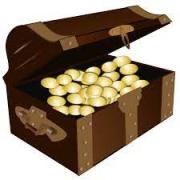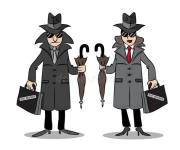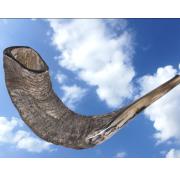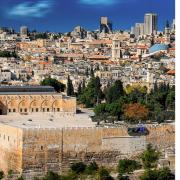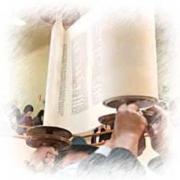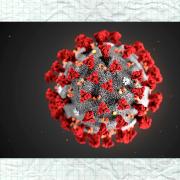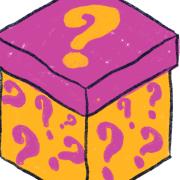The Divine Plan
In Megilat Esther, Chapter 2, Pasuk 7, we find something interesting and shocking.
וַיְהִ֨י אֹמֵ֜ן אֶת־הֲדַסָּ֗ה הִ֤יא אֶסְתֵּר֙ בַּת־דֹּד֔וֹ כִּ֛י אֵ֥ין לָ֖הּ אָ֣ב וָאֵ֑ם וְהַנַּעֲרָ֤ה יְפַת־תֹּ֙אַר֙ וְטוֹבַ֣ת מַרְאֶ֔ה וּבְמ֤וֹת אָבִ֙יהָ֙ וְאִמָּ֔הּ לְקָחָ֧הּ מׇרְדֳּכַ֛י ל֖וֹ לְבַֽת׃ - He was foster father to Hadassah—that is, Esther—his uncle’s daughter, for she had neither father nor mother. The young girl was beautiful and good-looking, and when her father and mother died, Mordechai adopted her as his own daughter.
Some commentators translate the לְקָחָ֧הּ מׇרְדֳּכַ֛י ל֖וֹ לְבַֽת - Mordechai adopted her as his daughter; instead, they say that Mordechai took Esther as his wife.
So, the shocking part would be that when Achashverosh was looking for a wife, Esther ended up as a contestant in a beauty pageant and later as the wife of Achashverosh.
Wow! How did that happen? A married Jewish lady, who never got a get, was never officially divorced, still had a living husband, ends up as the wife of another man, a non-Jew, a Persian monarch, a ruler of many nations?! Why would anyone agree to this? Why would Esther agree to this? Why would Mordechai allow his wife to go and live with another man? What would people say? The story says that Achashverosh didn't know she was Jewish because she hid that fact, but the local Jewish community—they were no fools —knew her and Mordechai, and they knew she was still his wife. Imagine the daily slander floating in the community as if Hashem canceled out the laws of lashon hara - the stories, the dirt, the looks - the daily new insights.
This is a very serious issue —how do we understand it? It seems like Mordechai and Esther were driven by something. But what can it be? To understand this, we need to look at a different episode in the Torah, which I believe is where they drew their inspiration.
In Parashat Vayera, Chapter 19, the Torah tells us how two angels came to save Lot and his family by taking them out of Sodom before it was destroyed. So the two daughters and father, Lot, end up in some cave outside the city. And this is where I would like to draw your attention.
The two daughters of Lot thought that there was no man left in the world, so they decided to be with their father to continue mankind. To accomplish this, they decide to intoxicate their father with wine. And that’s exactly how they did it.
Chapter 19:36-38 - וַֽתַּהֲרֶ֛יןָ שְׁתֵּ֥י בְנֽוֹת־ל֖וֹט מֵאֲבִיהֶֽן׃ - Thus the two daughters of Lot became pregnant by their father.
וַתֵּ֤לֶד הַבְּכִירָה֙ בֵּ֔ן וַתִּקְרָ֥א שְׁמ֖וֹ מוֹאָ֑ב ה֥וּא אֲבִֽי־מוֹאָ֖ב עַד־הַיּֽוֹם׃ - The older one bore a son and named him Moab; he is the father of the Moabites of today.
וְהַצְּעִירָ֤ה גַם־הִוא֙ יָ֣לְדָה בֵּ֔ן וַתִּקְרָ֥א שְׁמ֖וֹ בֶּן־עַמִּ֑י ה֛וּא אֲבִ֥י בְנֵֽי־עַמּ֖וֹן עַד־הַיּֽוֹם׃ - And the younger also bore a son, and she called him Ben-ammi; he is the father of the Ammonites of today.
So, the oldest daughter named him Moav—another way to read מוֹאָ֑ב is Me Av, which means "From My Father" (as if she were declaring it to the world).
Whaaaaaaat?? Why would anyone name their son this way? Didn't she realize that people will point their fingers in his face and tell him that he came into this world not in a kosher way, and there is a whole lot wrong with his lineage? Why would a mother put her son through so much shame and put herself through shame as well? The second daughter named her son Ben-Ammi, the Son of My Nation, which could be anyone and nothing shameful. You could say that she had a blissful life with no worries or concerns.
But the oldest asked for trouble by naming her son this way, and she got plenty of it. But because she chose to be honest, unlike her other sister, with no made-up stories, accepted her situation, and went through that shame and suffering in life, so as not to mislead anyone, she merited to have royalty come from her lineage - King David, King Solomon, all the way to the King Messiah.
As Mordechai approached Esther, he told her that, for that generation to merit the next Bet Hamikdash, just as the oldest daughter of Lot merited kings, the only way was for Esther to marry Achashverosh.
When everything was done and over and the nation was saved, Queen Esther had a son, Darius, who became King Darius II. She brought him up to be favorable toward the Jews, and he eventually lifted the ban on rebuilding the Bet Hamikdash, freed the nation, and helped them rebuild the Second Temple in Jerusalem.
So now, let’s talk about the Messiah. The holy books say that Mashiach will suffer greatly. Let’s try to understand that.
The book of Prophet Isaiah, Chapter 53:10, says, “Hashem desired to oppress him, and He afflicted him.” In 53:7, “He was persecuted and afflicted.” In 53:5, “He was pained because of our rebellious sins and oppressed through our iniquities; the chastisement upon him was for our benefit, and through his wounds, we were healed.” In 53:4, “But in truth, it was our ills that he bore, and our pains that he carried.”
Just as the oldest daughter of Lot endured her pain and humiliation, she merited the lineage of kings. Ruth the Moabite and her grandson, King David, went through their trials, which merited the nation the First Bet Hamikdash. The Queen Esther went through her difficulties and merited the nation the Second Bet Hamikdash. So the Righteous Messiah will go through pain and suffering just to atone for his generation, and eventually to merit the Third Bet Hamikdash in Yerushalayim.
May Hashem bring about the events for the rebuilding of the Third Bet Hamikdash, and we see it rebuilt speedily in our days, Amen!!
Shmuel Katanov






